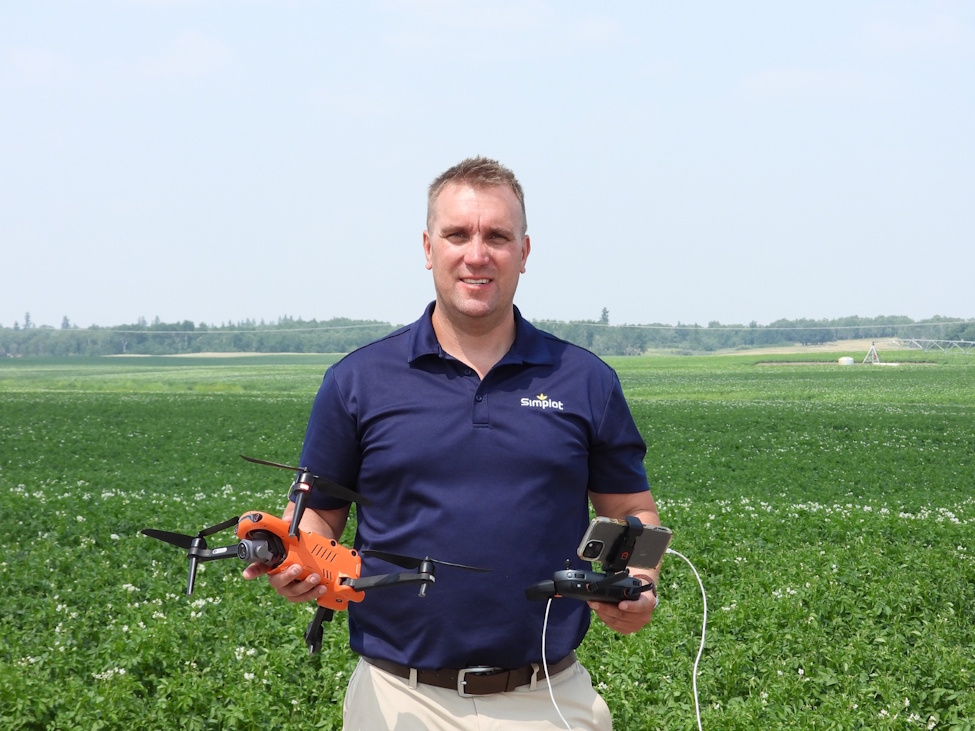A group of Manitoba farmers is drawing provincial attention for their role in protecting land and water across the Lake Winnipeg Basin. As part of a multi-partner project involving Simplot and other agriculture and sustainability groups, four farms are demonstrating real-world practices that improve soil health, reduce water waste and support biodiversity.
Scott Graham, raw agronomy manager with Simplot, says the Lake Winnipeg Basin project is about collaboration across sectors to support practical environmental solutions.
“We had selected four farms four years ago that we are working with to identify opportunities for the ecosystem and watershed that flows into Lake Winnipeg,” says Graham. “These opportunities look at soil health, erosion, water quality and water quantity.”
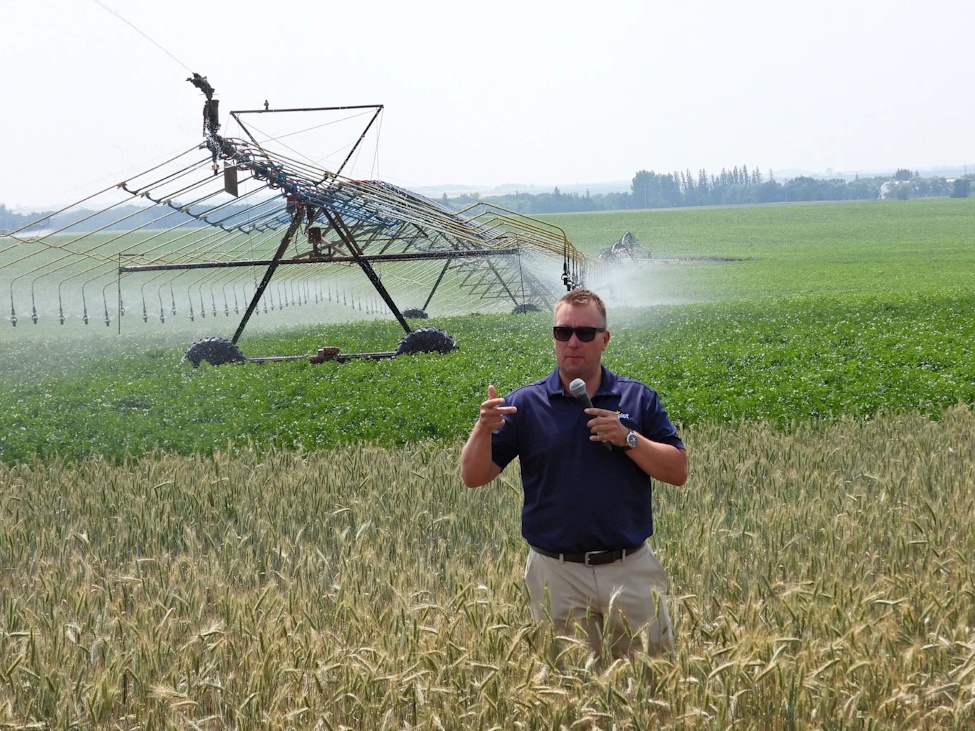
Graham says the goal is to bring together farmers, industry, government and Indigenous leaders to identify what’s already working and how to build on it.
“Farmers are humble,” notes Graham. “They are doing a lot of these management practices and stewardship already. It’s just having them tell those stories and let it be known to the general public what is going on.”
Farms across Manitoba host tour
The July 8 tour brought more than 100 visitors from government, First Nations, universities and the ag industry to three of the participating farms. It started in Winnipeg and included stops in Graysville, Bruxelles and Glenboro.
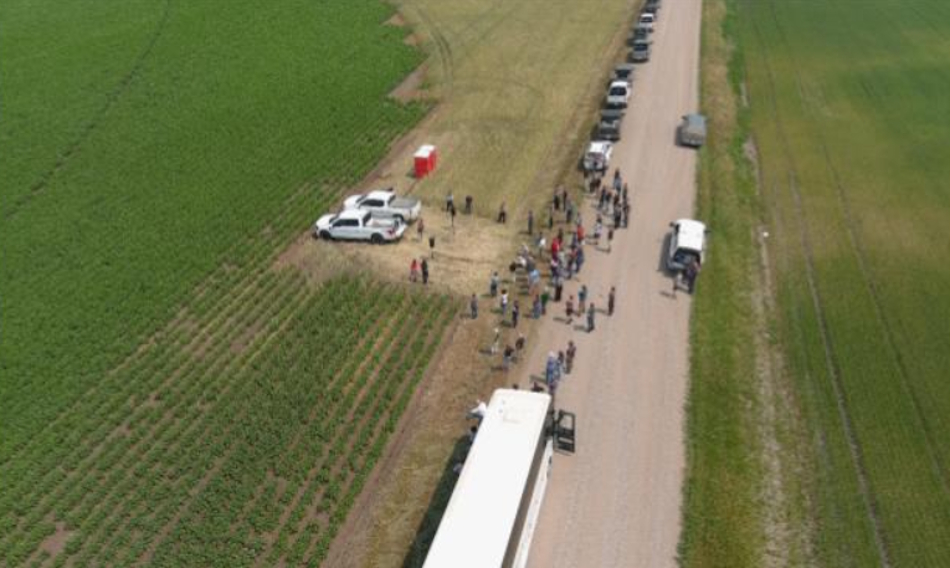
Picture of Field tour at Under the Hill Farms Near Glenboro, Manitoba. Drone shot of just over 100 people that toured farms and fields demonstrating soil health and efficient irrigation practices. People on the tour included Indigenous groups, local municipal officials, watershed districts and levels of provincial and federal governments.
Derek and Sean McIntosh of McIntosh Ventures in Graysville showcased a tile drainage system that pumps water from underground pipes into an irrigation pond. That same water is later reused on potato fields.
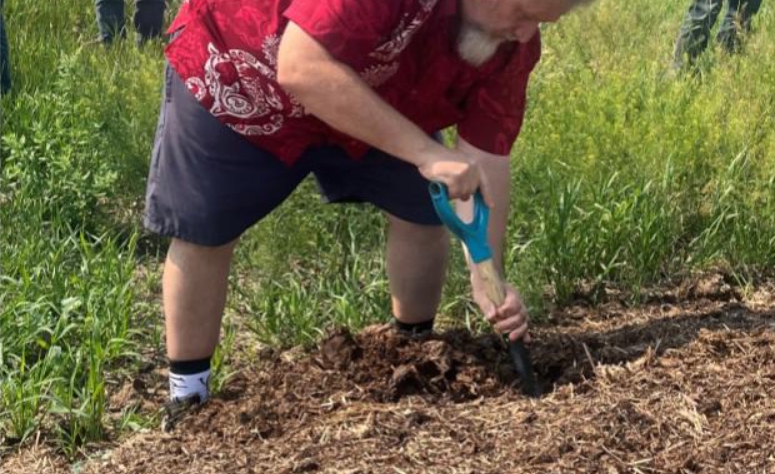
Dr. Mario Tenuta, Soil Science Professor from the University of Manitoba roots around in straw manure being turned into compost that will be applied to sensitive parts the field to reduce erosion, increase soil organic and reduce use of synthetic fertilizers in fields. Tour stop at Swansfleet Farms near Cypress River Manitoba
Graham says the farm is also using “a See and Spray precision sprayer” that “goes across the field with cameras and scanners on it, only identifying weeds and targeting those weeds.” He adds that these practices help reduce herbicide use and lower costs.
The group also visited Swansfleet Farms near Holland, where Russell Jonk and his family have turned an irrigation reservoir into a wildlife habitat by simply changing their mowing habits.
“They decided not to mow the brims and the surrounding area of the pond,” Graham says. “That is creating wildlife habitat—nesting area for birds, rabbits, and even a few deer.”
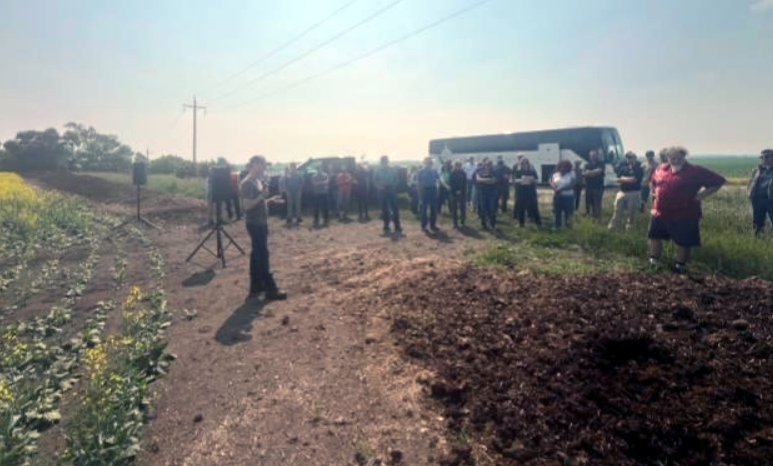
Russell Jonk discussing manure as compost to be used on sensitive areas of fields to reduce erosion, and synthetic fertilizer use and to increase and improve soil health.
At that same site, the Jonks are also composting manure from local cattle producers and applying it to sensitive zones of their fields, such as sand ridges and knolls, to boost organic matter and reduce erosion.
Collaboration fuels innovation
The final stop on the tour was Under the Hill Farms near Glenboro, where Chad Berry is using a unique water distribution method.
“We looked at irrigation methods where there's booms mounted on the front and the back of the pivot,” says Graham. “The whole idea is to have a slower infiltration rate so that there is no ponding in the field and the water is dispersed more evenly.”
Berry’s site also features an Intellirain system that adjusts water distribution based on field elevation and moisture levels, minimizing runoff and maximizing yield.
Experts and engagement
At each site, specialists joined the tour to share technical insights. At the compost site, University of Manitoba professor Dr. Mario Tenuta explained how heat from the composting process breaks down weed seeds and pathogens before the material is applied.
Graham says: “We also had speakers on the different types of irrigation equipment—Cam Cote from Intellirain in Calgary and Matthew Waldner from Cascade Manufacturing near McGregor—so the whole idea is to learn off each other.”
The event drew more than 100 participants, including over 50 who began the day on a bus from Winnipeg and others who joined at stops along the route.
“There was great conversation and collaboration throughout the day,” Graham says. “It was very hard for myself to break up the discussion because people were just learning off each other.”
Looking ahead
The Lake Winnipeg Basin Project is designed to keep evolving as more farms and partners get involved. Graham says they hope to continue holding similar tours every two years.
“Right after the event we were getting emails and people were really asking if it was going to be next year,” says Graham. “We haven’t decided yet, but it’s definitely something we can continue for the future.”
In the meantime, Graham says farmers interested in learning more can connect directly.
“Probably best to contact myself at Simplot, 204-871-1781.”
For those already subscribed, Graham adds that Simplot distributes a monthly newsletter to Manitoba’s contract potato growers to keep the conversation going.
“Farmers are not always the first to want to tell their stories,” he continues. “But this is just a great way that we can get the word out on what farmers are doing for sustainable activities and benchmark that so we can continue to move forward and advance.”
